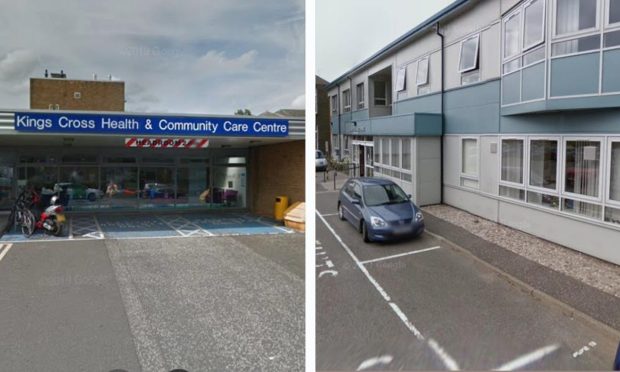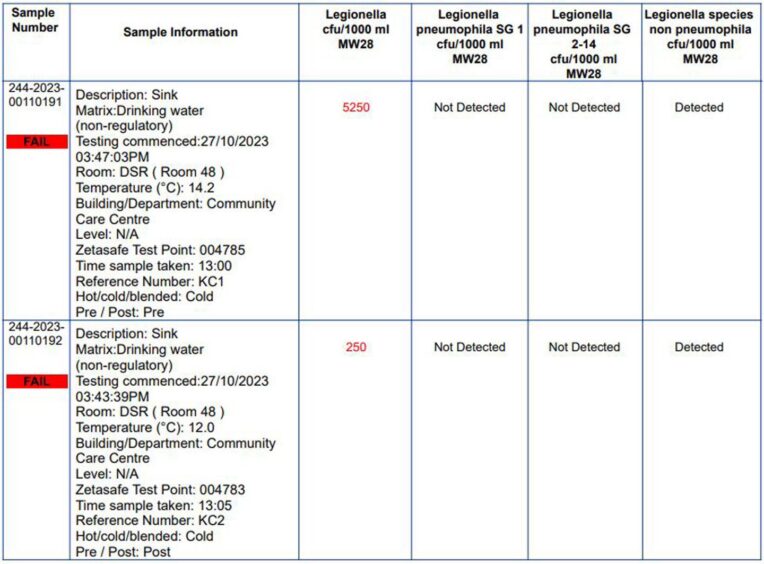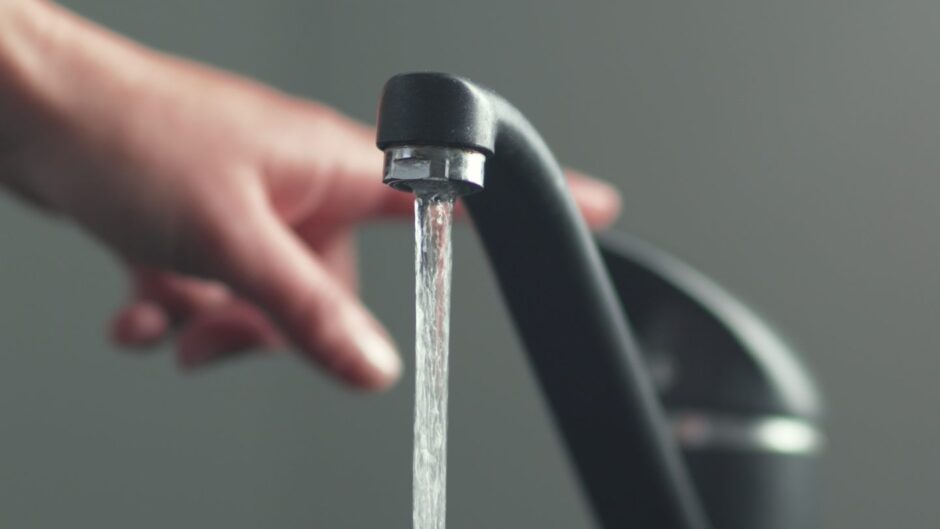Health chiefs insist drinking water at Tayside hospitals is safe – despite legionella being discovered more than 20 times this year at sites in Dundee and Arbroath.
Documents seen by The Courier show tests carried out on water at various locations in Kings Cross Hospital in Dundee and Arbroath Infirmary discovered the potentially deadly bacteria.
The paperwork shows at least 21 tests found legionella over several months.
Most of the tests listed in these documents were carried out on sinks described as providing “drinking water” in areas like the Community Care Centre at Kings Cross and the main ward block at Arbroath along with workshops and staff rooms.
Other tests were carried out at the maternity unit and the medical unit (ward two) at Arbroath.
However, NHS Tayside insists none of these locations are designated drinking water sources for patients or staff, and that supplies remain safe.
Legionella can cause health problems, including the lung infection Legionnaires’ disease – which is described by the NHS as uncommon but potentially “very serious”.
A whistleblower described the levels of legionella found during the tests as “cause for serious concern, especially as they have been found in medical and maternity wards”.
Tess White, the shadow public health minister with the Scottish Conservatives, also described the findings as “worrying”.
She added: “Left unchecked, legionella colonies can cause Pontiac syndrome and even pneumonia – a major risk to patients and staff in hospitals.
“This is why health boards must routinely check water supply systems for legionella.”
NHS Tayside: ‘None of the samples were from drinking water supply’
A spokesperson for NHS Tayside said: “It is very important that the public is aware that none of the samples tested were from drinking water supply.
“We have confirmed this is the case.
“The reports from an external supplier who carry out quarterly water quality testing across our sites categorise any tap providing water from a water mains source as drinking water for the compliance reports.
“However, the reports do state the location of the tap quite clearly and this shows that none of the tap outlets identified as returning positive samples of legionella are designated drinking water sources for patients or staff.
“NHS Tayside can confirm drinking water has not been affected across any of our sites.”
The spokesperson said it was “common” for legionella to be found in large buildings, so routine tests are carried out in line with national guidance.
They added: “During this routine sampling, legionella bacteria were found in pre-flush tests in areas where there is no patient activity including a domestic waste area, a machine workshop and a sink in a staff break area.
“None of these taps are used to provide drinking water for patients or staff.
“Pre-flush test samples are taken as soon as a tap is turned on and it is not uncommon to return positive results from pre-flush sampling in areas like these service areas where water outlets are infrequently used.
“The tap is then allowed to run for at least two minutes and the water is tested again.
“The vast majority of tests taken at this stage return negative results or levels which are not harmful.
“NHS Tayside takes water quality extremely seriously and when legionella is found during any routine testing, immediate action is taken to resolve the issue.
“A multi-disciplinary team including infection prevention and control, microbiology and estates professionals ensure highly effective procedures and practices are in place to maintain water systems.”
Earlier this month, a ward at Victoria Hospital in Kirkcaldy was shut after the discovery of legionella.













Conversation